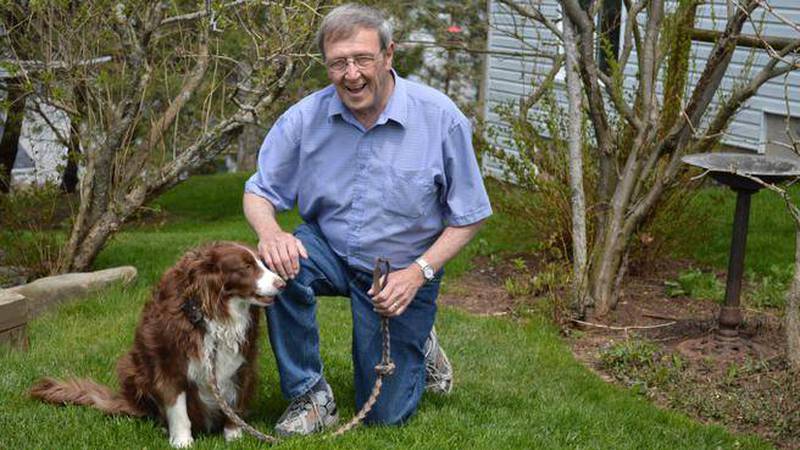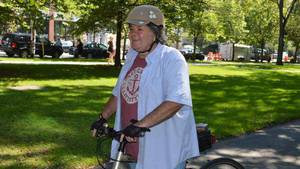Carol Dobson
Instead of a 17-day trip to Nashville last October, Truro’s Gary Cox found himself in not one, but two hospitals. En route to join a bus tour to the music city, Gary collapsed in Moncton’s Champlain Mall. Fortunately, two student paramedics happened to be walking by and were able to keep him alive until an ambulance arrived to transport him to hospital.
“One of the first things they did was put a nicotine replacement patch on me after they noticed a package of cigarettes in one of my pockets,” he says. “I was in Moncton for five days before I was transferred to Halifax. Three weeks after I collapsed, I received an aortic valve replacement.”
While receiving surgery and care at the QEII Health Sciences Centre, Gary became a participant in the hospital’s Stop Smoking Support Program.
“This program was set up in response to Nova Scotia’s Tobacco Reduction Strategy,” says Sharon Daley, RN, and program coordinator for the Stop Smoking Support Program. “It began in July 2009 with nine units at the QEII and has grown to 19 units within HRM."
When a patient is admitted, the nurse assigned to their care asks a number of questions during their initial assessment. They are screening for the 19.4 per cent of Nova Scotians who still smoke tobacco. They ask if the patient is a smoker, how long they have smoked, how much they smoke, how frequently, and if they would like assistance in quitting.
If the answer is yes, they are provided with a number of tools to help wean them off tobacco while they are in hospital. Sharon says one of the main goals is to ensure they are kept comfortable during their stay.
“They’re given different types of nicotine replacement — patches, gum, lozenges, and nicotine inhalers, which are all free of charge while they’re admitted,” she says. “When they’re discharged, they are offered an optional six months of follow-up, with automatic phone calls once a month and support from counsellors through the Smokers’ Help Line.”
The program is part of the Ottawa Model for Smoking Cessation (OMSC) for hospital inpatients, which was developed in partnership with Health Canada, the University of Ottawa Heart Institute, and the Canadian Cancer Society’s Smoker’s Helpline. Sharon says data collected in Nova Scotia is forwarded to Ottawa, and is incorporated with data from across the country.
Since its inception, more than 3,000 smokers have taken advantage of the program. Gary is a model participant as he has not only thrown away the cigarettes, but has adopted a healthier lifestyle and is participating twice a week in a cardiac rehabilitation program in his hometown of Truro.
Gary admits that he occasionally misses smoking — it’s something that he did for years. But the scare he had leading to his heart surgery, along with the smoking cessation program, have been successful in helping him quit.








